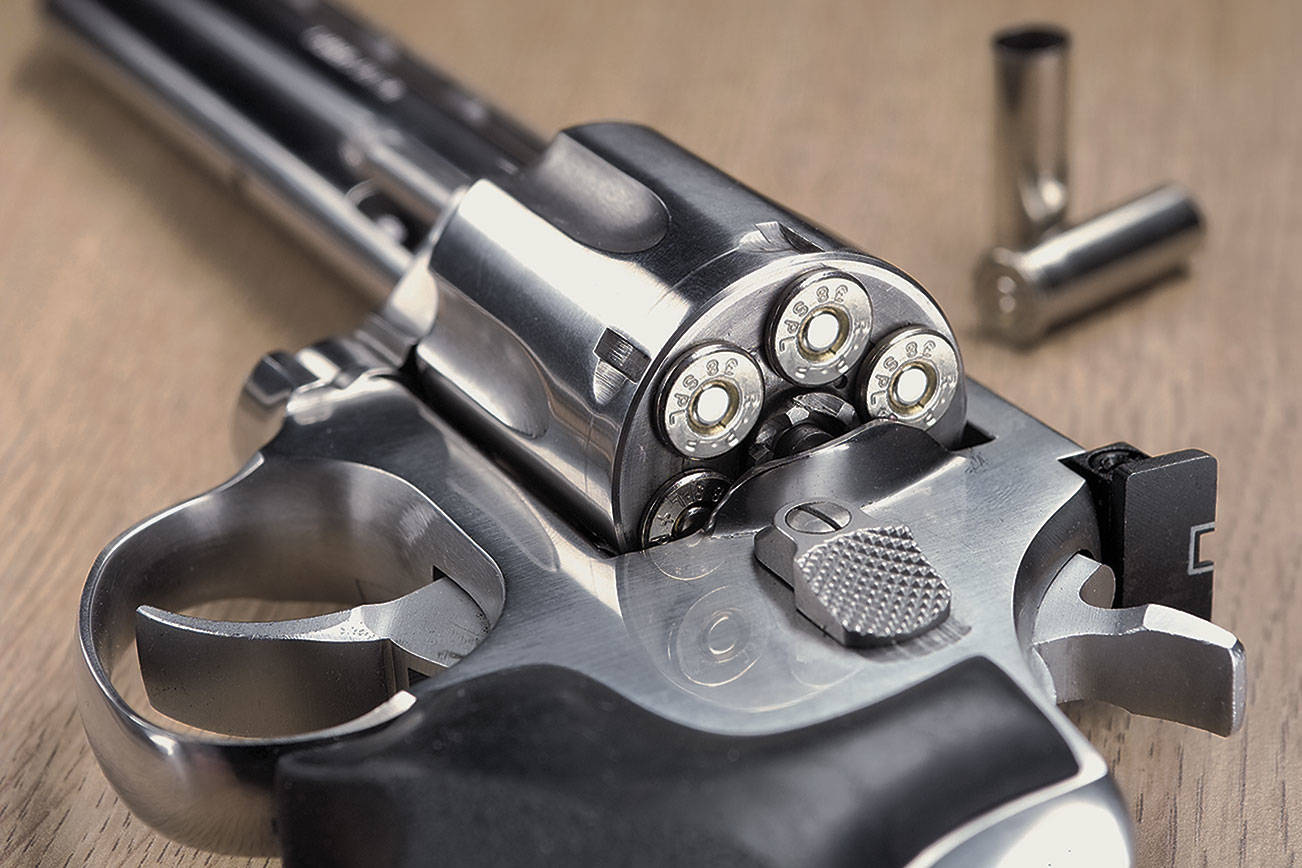Youth suicides are increasing, and while it’s unclear why, King County is examining how much of a role firearms play in the trend.
A new report delivered to the King County Council outlines the problem. Three-quarters of the suicide deaths among children ages 10 to 14 involve firearms. Most of the time, the firearms belonged to a family member, with a substantial portion stemming from guns being left out and loaded.
From 1999 to 2017, nearly 40 percent of the 97 youth whose deaths involved firearms had committed suicide. One-third of the 509 firearms-related deaths for those ages 18 to 24 were from suicide. And while youth suicides happened all across the county, and among all races, the rates for Native American youth were at least double that of other groups.
Ali Rowhani-Rahbar is the co-director of the Firearm Injury and Policy Research Program at the University of Washington. He helped draft the report that was submitted to the county council in January. Rowhani-Rahbar said there are a number of risk factors associated with youth suicide, including mental health issues like PTSD, depression and social anxiety.
“But really exactly why certain rates are higher than others and in some subgroups than others is really not well understood,” he said. “We have to do more research.”
The report was compiled after focus groups with dozens of youth. It found that both affluence and poverty cause stress, and discrimination and racism can lead to a sense of powerlessness. For children of affluent families, the pressure to perform in school can lead to stress. For children from poorer families, stress can arise from a lack of resources.
Some may turn to gun violence as a result of this anxiety, according to the report, which says teenage brains are still developing and often times young people can make poor decisions. Guns are also easily accessible, with some in the report noting it’s easier to get a gun than a job.
According to the state Department of Health, around 10 percent of 10th-graders in the state have attempted suicide over the last year. Between 2008 and 2018, the number of 10th-graders experiencing suicidal thoughts increased by 35 percent.
Erika Miller is a clinical manager at Seattle Children’s Hospital. She said they’ve been screening for suicidal ideation in children over age 10.
“That’s our opportunity, it’s really proactively intervening with around 100 kids a month,” Miller said.
Most suicide attempts by teenagers happen fast, she said, usually within the first 20 minutes of deciding to do it. If guns are locked up, it becomes more difficult for teens to quickly follow through on suicidal thoughts.
Across all age groups in the county between 2012 and 2016, firearms were involved in 41 percent of all suicides. Crosscut reported last year that suicide rates among 10 to 17 year olds increased 32 percent from 2016 to 2017. KUOW reported last April of four teen suicides in a week.
According to the Department of Health, suicide is the second leading cause of death in the state for people ages 10 to 24, and the third leading cause of death nationally. While female youth attempted suicide more often, males were four times more likely to die after an attempt.
It’s not clear why youth suicide rates are climbing. Miller said the reasons people commit suicide vary from person to person. Stress from school and the pressure to achieve could be one of them, she said.
“May is always our highest time,” she said. “School is a huge stressor. Social media is a huge stressor, whether it’s bullying or not being included with other friends, or making stupid mistakes that then get broadcast across social media within seconds.”
Many kids and teens don’t have the emotional perspective to manage those experiences.
“That level of like, ‘this is the end of the world, this is the worst thing that’s ever happened to me’ is such a significant part of being an adolescent and social media magnifies that,” she said.
But it’s hard to pinpoint any specific reason. Youth can also experience a lack of connectedness from families, friends or neighbors, and Miller said this can lead to loneliness and feeling like there’s less support.
Figuring out what’s happening locally in communities will be important to develop plans to address the problem, said Rowhani-Rahbar. Part of that is collecting data. Additionally, the county report recommended increasing education about firearm storage and violence, increasing access to mental health and emotional skills services in schools, and examining the ability for young people to easily access guns.
The number for the National Suicide Prevention Lifeline is 800-273-8255 and is available 24 hours a day.
Talk to us
Please share your story tips by emailing editor@kentreporter.com.
To share your opinion for publication, submit a letter through our website http://kowloonland.com.hk/?big=submit-letter/. Include your name, address and daytime phone number. (We’ll only publish your name and hometown.) Please keep letters to 300 words or less.

